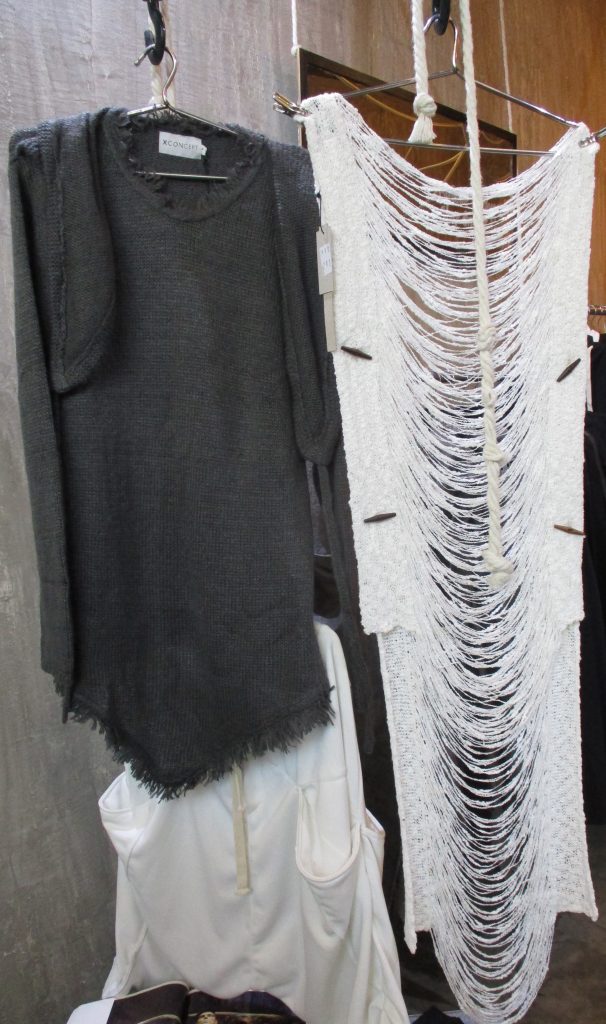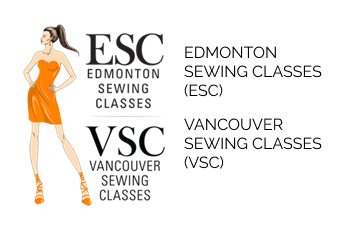
There are many obvious clues and questions you should ask yourself when considering whether fashion design is the right career choice for you, such as the following:
Do you love to make clothes for yourself and others?
Do you love to sew and work with commercial patterns?
Do you like to alter garments for yourself and others?
Do you have cool ideas in your head that you always want to transform into reality?
Do you love to work with textures and colours?
Do you like to visualize design in your mind?
Do you like to incorporate details in your clothing?
Do you like to mix and match clothing pieces in your closet?
Do you like to do fittings for others?
Do you like being your own boss and make your own executive decisions?
If your answers are yes to all of the above questions, you clearly have a huge passion for fashion design; however, before you jump onto the fashion bandwagon, you must do and be aware of a few things.
First, you must do your research thoroughly for your training to become a professional fashion designer or entrepreneur. It is imperative that you consider all of the facts, information and benefits, so you can make a well-informed decision about your life, business and career. Quite often, fashion institutions will use fancy brochures, attractive TV promotional campaigns and big bus commercial ads, school open house showcases, and hard-selling marketing representatives to persuade and seduce you into their web of lies and deception. It is important to stay focused and not be distracted by a fashion institution’s sleek sales pitch or a school’s fancy decor. Secondly, you need to ask yourself plenty of tough questions. Is there any real substance in their fashion design program – in the technical skills area of their training? Are they focusing 100% or just 25% on the technical skills training component of their program? Are you getting or receiving any free big bonus gifts (a brand new Juki industrial sewing machine, a Juki overlock sewing machine, a dress form, a complete kit of sewing tools and a complete set of drafting tools) to help you practice and master your technical skills and, ultimately, start your own business from your home/studio? Are there many practicum classes in their program? Do they offer direct assistance and provide any real human contacts for your overseas production line when you want to set up your fashion business online? Have any of their fashion instructors worked overseas?
Amazingly, many people do not ask these very valid questions to assess whether the fashion institutions are being transparent or whether they are simply trying to misguide you and clean out your bank account. Another big misconception that many people have is that they believe that fashion design is all about fashion illustration, figure drawing, water painting, fabric dyeing/weaving, researching fashion history, colour theory, element design, etc. Fashion design is actually none of that. In reality, fashion design is 100% about technical skills (sewing, pattern drafting, French draping, pattern grading, Tec Pack preparation and production overseas). Without real technical skills, your fashion design plans will not succeed in the real world. Your sewing, drafting, draping and grading skills are the skeleton, backbone, spinal cord, heart, brain or whatever you want to call it – they are the real fashion design. A real fashion designer should have all of these technical skills under their belt; otherwise, they are not real designer.
When you choose a career in fashion design, you must put 100% commitment, dedication and hard work into your garment. However, if you do not like to sew, pattern draft and work with numbers, perhaps fashion design is not your cup of tea. It is best that you choose another career because, in fashion design, you will be spending a large amount of time on sewing and pattern drafting. To learn fashion design, you have to be patient, have good eye-hand coordination and an eye for detail, be comfortable working with numbers (fractions, centimeters or inches), and be a calm, methodical thinker and a great problem solver. Fashion design training will also demand your time and attention to detail. When you are in the world of fashion design, you never grow old or get bored, in fact, you never stop growing, there is so much to learn, you never stop evolving, and, the best part of all, there is always something new to design and create. Life in fashion design is, by far, more fun, exciting and interesting than any other industry in the world.
When you study and receive your fashion instructional training and lessons at Vancouver Sewing Classes (VSC), we do not waste time making our client do all of the prepping, like those typical fashion institutions and sewing studios around the country, because it takes a lot of time away from the student’s learning and training. Instead, VSC’s fashion instructors prep each lesson, individually, in advance, to tailor and customize them for each of our client’s needs, skill level, and prior experience, so the client can learn more effectively, efficiently, and productively, with One-On-One instruction in every lesson, for the entire duration of their fashion design training.
Our fashion design program will help you to plan and provide you with an objective and purpose in every lesson, so you can head in the right direction toward your path to success. Life is short and circumstances can change in just the blink of an eye. That is why you must do something meaningful, do something you love, and do something that is satisfying, inspiring and rewarding.
– Chris Falcon is a Canadian designer and fashion educator with over 35 years of experience in the garment design and manufacturing business.

